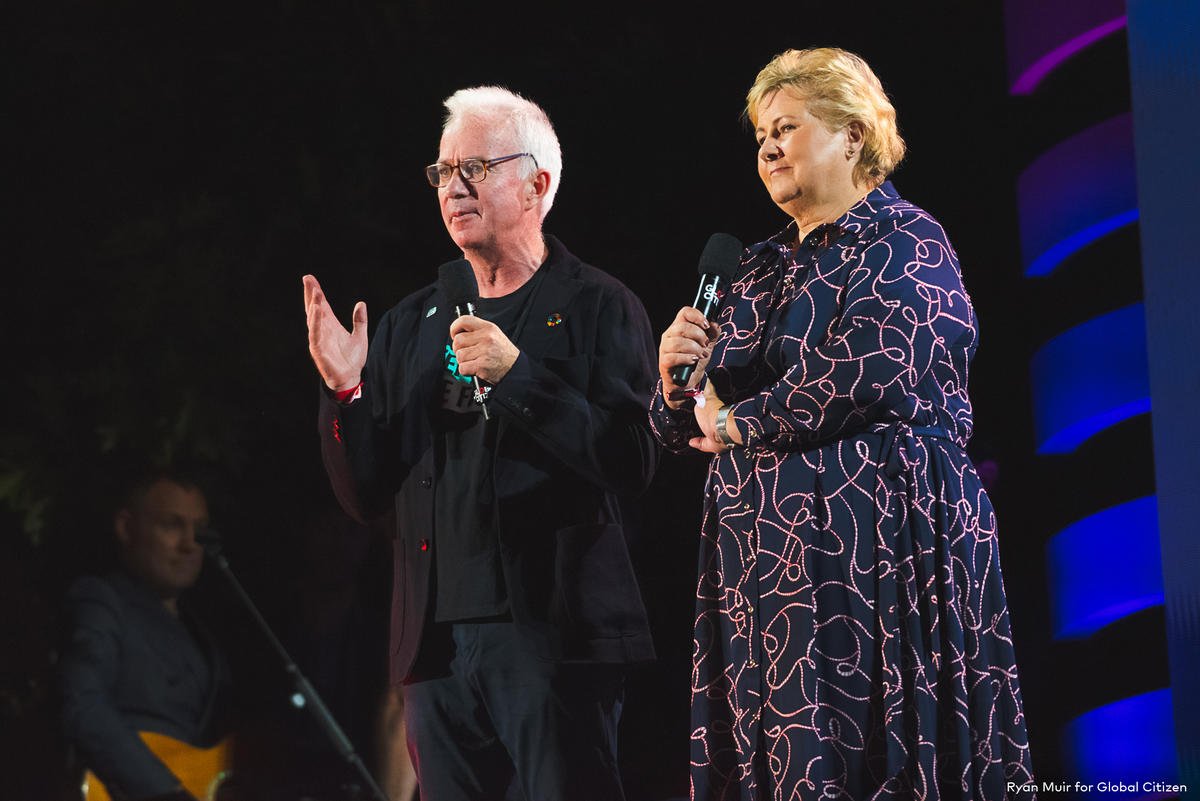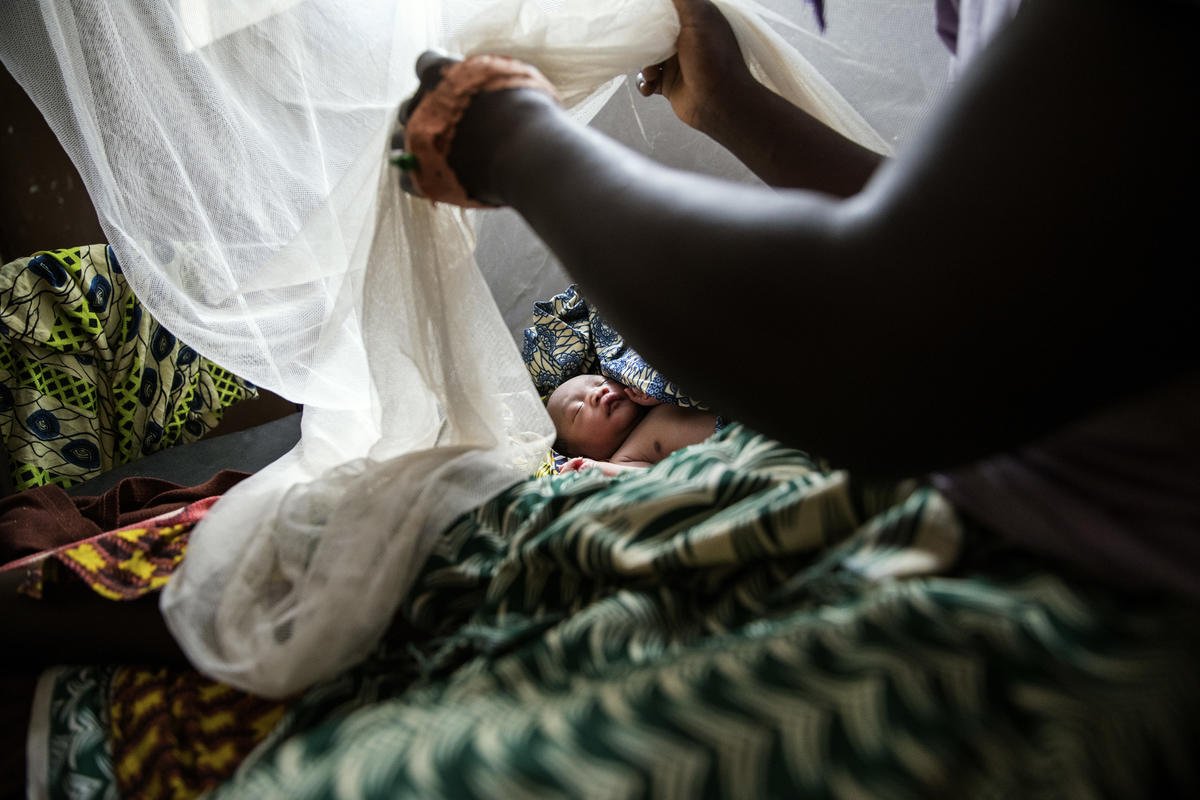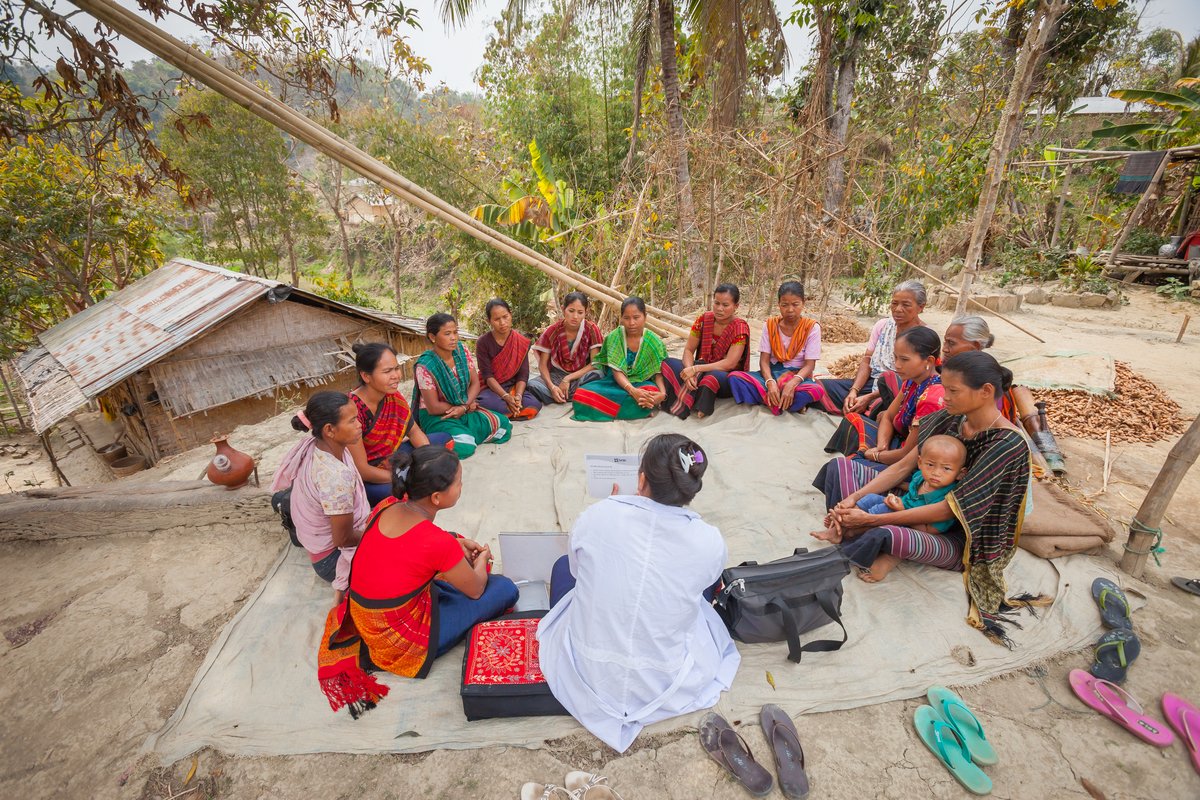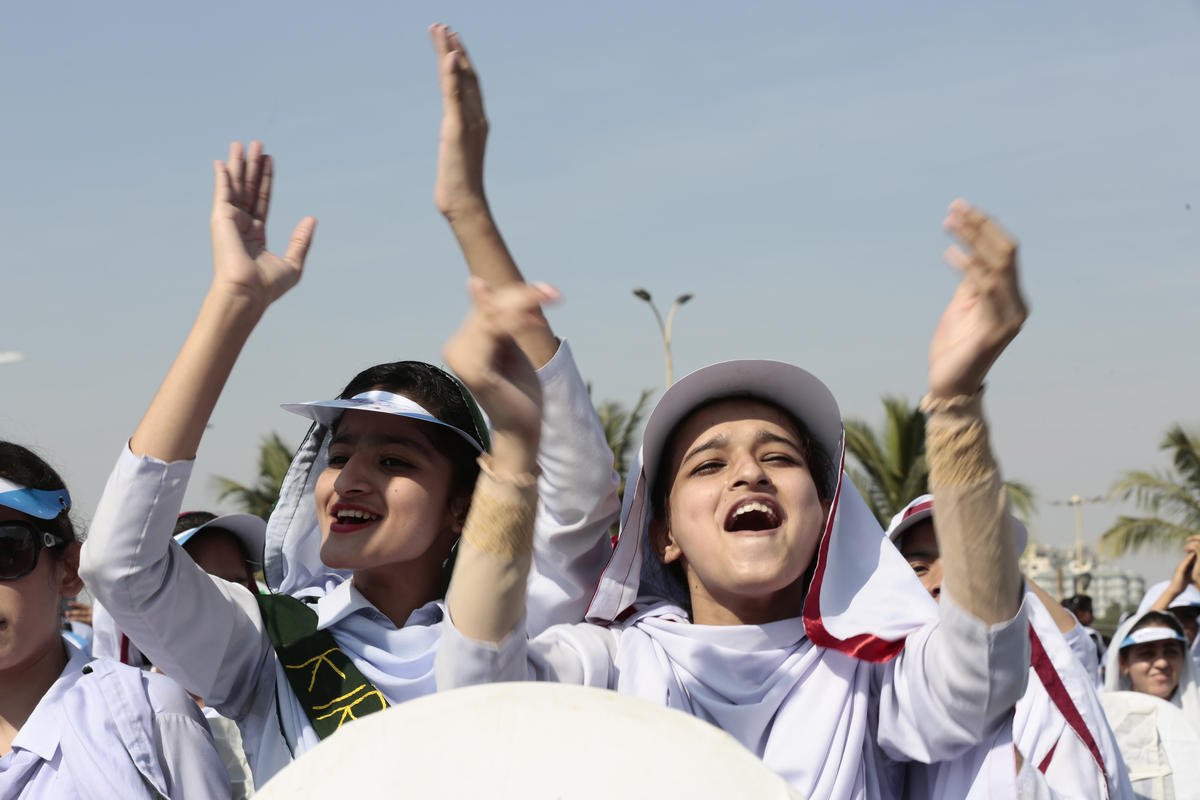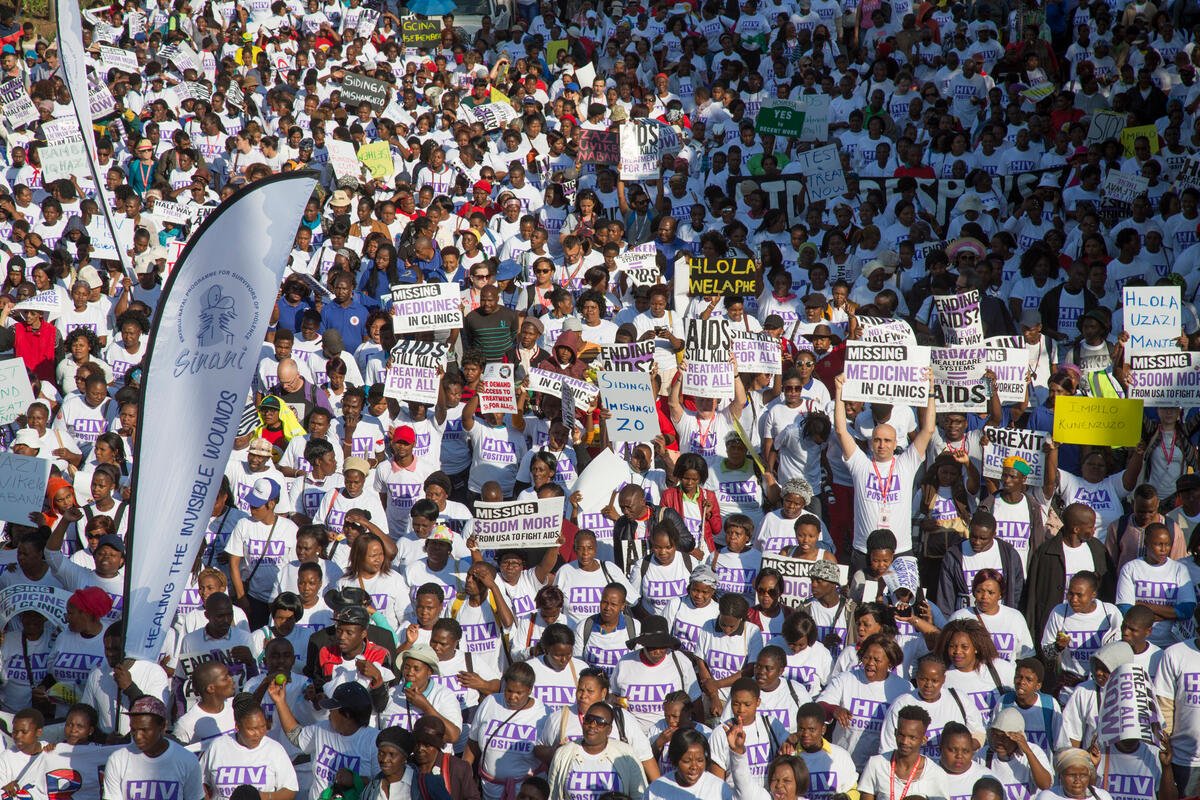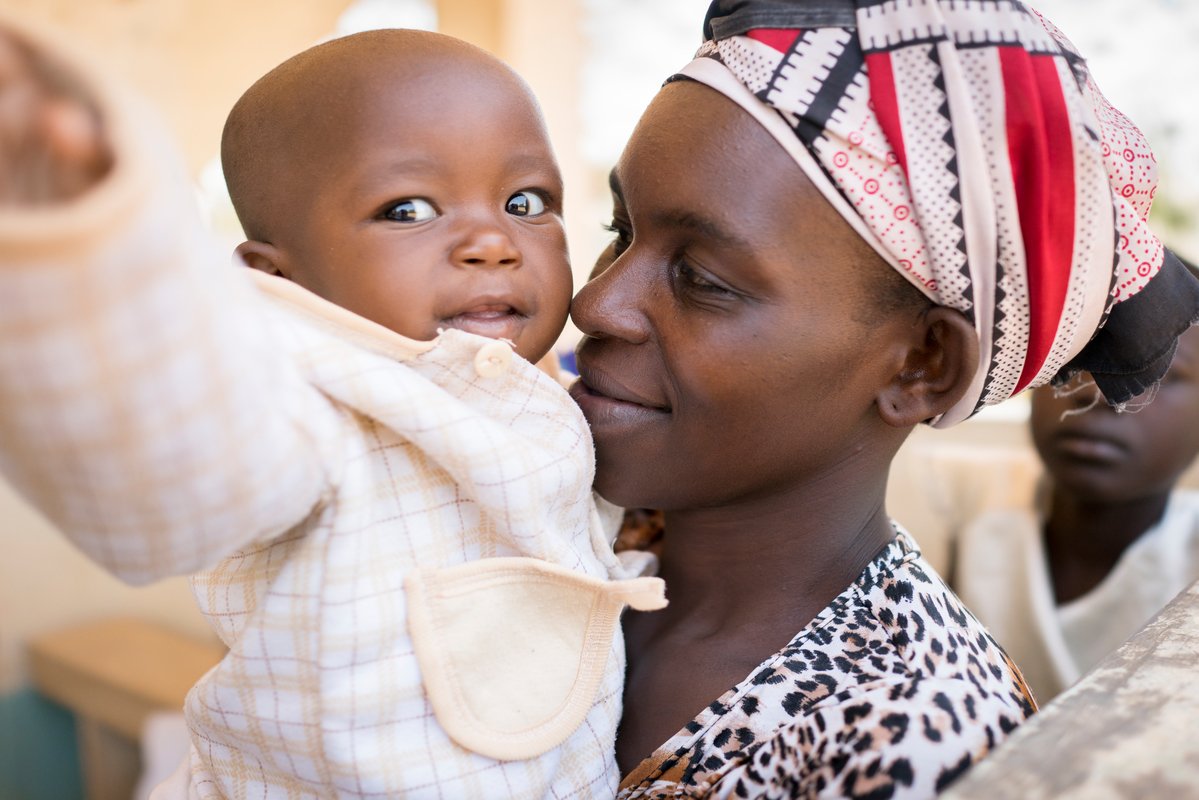As a founding partner of the Access to COVID-19 Tools Accelerator (ACT-A), the Global Fund to Fight AIDS, Tuberculosis (TB), and Malaria is at the forefront of the global COVID-19 response.
Since 2002, the organization has saved more than 44 million lives, decreasing deaths caused by AIDS, TB, and malaria by 46% globally, while providing COVID-19 tests, treatments (including medical oxygen), and personal protective equipment (PPE) to millions of people across the world since the beginning of COVID-19.
“The Global Fund fights injustice which fuels infectious diseases,” the Global Fund’s Executive Director, Peter Sands, told Global Citizen. “We are the biggest organization fighting the deadliest infectious diseases – HIV, tuberculosis (TB), and malaria, and now COVID-19 – at scale, worldwide.”
“We should protect everyone, everywhere, from the deadliest infectious diseases, those we face today, and those we will inevitably face tomorrow,” added Sands.
Pre-pandemic, fighting infectious disease was already a significant challenge, but since 2004, deaths from infectious diseases have dropped by half.
Today, the pandemic has almost stalled the life-saving programs, disrupting the delivery of health services and threatening to reverse this hard-won progress. A rapid and decisive COVID-19 response by the Global Fund partnership is working hard to meet these shortfalls, leveraging global partnerships to protect health workers and ensure communities are prepared for this pandemic and the next.
As a long-time partner of Global Citizen, the Global Fund joined Global Citizen for Global Goal: Unite for Our Future, announcing US$168 million in commitments for its COVID-19 response.
To find out more about the Global Fund’s work tackling some of the world’s most urgent infectious diseases, Global Citizen spoke with Sands following the one year anniversary of Global Goal: Unite for Our Future — a summit and concert held by Global Citizen and the European Commission in June 2020 — and the launch of the Global Fund Results Report in September.

In what ways are you inspired by what you do at the Global Fund every day?
Sands: This year, the Global Fund celebrates 20 years of making the impossible possible. Twenty years ago, AIDS, tuberculosis, and malaria looked unbeatable. Year after year, the world’s deadliest epidemics were claiming millions of lives with devastating consequences for families and communities around the world, especially in poor countries.
In 2001, the birth of a brave new partnership changed the story of global health, uniting world leaders, communities, civil society, health workers, and the private sector to fight AIDS, tuberculosis, and malaria. Over the course of two decades, the three diseases have been stopped in their tracks.
The Global Fund was born out of a refusal to accept the loss of millions of lives each year to diseases that were both preventable and treatable.
At the time, just 0.05% of people living with HIV in Africa were receiving antiretroviral therapy — medication that was already widespread in high-income countries. One million children were dying of malaria each year, while millions of tuberculosis cases went undetected and untreated.
Activists, especially in southern Africa, demanded equal access to treatment for everyone. Born from urgency, the call for justice grew louder, united around one goal: to save lives and end HIV, tuberculosis, and malaria as epidemics.
The Global Fund fights injustice which fuels infectious diseases. We challenge power dynamics to ensure affected communities have an equal voice in the fight and an equal chance at a healthy future. It is the opportunity to change and address inequalities around the world.

Why is the work of an organization like the Global Fund so essential in the fight to protect the world from COVID-19?
The Global Fund is a worldwide movement to defeat HIV, TB, and malaria and ensure a healthier, safer, more equitable future for all. Even before this pandemic struck, the Global Fund was raising and investing over US$4 billion a year to fight the deadliest infectious diseases, challenge the injustice which fuels them and strengthen health systems in more than 100 of the hardest hit countries.
Now we’re doing double that.
We are the biggest organization fighting the deadliest infectious diseases — HIV, TB, and malaria, and now COVID-19 — at scale, worldwide. We are the largest multilateral investor in grants for health systems, investing well over US$1 billion a year to build resilient health care systems and community health networks that are at the core of the response to any pandemics.
The Global Fund is now the primary channel for providing grant support to low- and middle-income countries for COVID-19 tests, treatments, personal protective equipment (PPE), and related health system strengthening.

In a recent op-ed, you wrote that "COVID-19 should be a catalyst for a radical rethinking of approaches to shared global health." How can global leaders from rich countries support health equity, and continue to prioritize low-and middle- income countries so COVID-19 doesn’t become another ‘largely forgotten disease?’
However rich we are and wherever we live, we share the same planet. COVID-19 should be a catalyst to a radical rethinking of our approach to our global shared health.
Rebadging old notions of global health security as pandemic preparedness and response is not enough. In the same way that climate change demands a bolder, more inclusive global response, so too does the threat of pandemics.
We should protect everyone, everywhere, from the deadliest infectious diseases, those we face today, and those we will inevitably face tomorrow. Reinforcing pandemic preparedness through turbocharging the fight against existing diseases will tackle the problem that has fatally undermined all previous efforts to reinforce global health security: sustaining political attention and financing when success is measured in nothing happening.
Saving lives while making us all safer is a much more compelling and thus much more sustainable proposition. It’s also the right thing to do. Pandemic preparedness should be about making us all safer, wherever we live.
Global leaders need to commit to protecting everyone, everywhere, from the deadliest infectious diseases, including COVID-19, HIV, TB, and malaria, and future pathogens.

This is not just a moral imperative, but practically and politically a much more effective approach for global health security. The capabilities to detect, prevent, and respond to future pathogens — for instance, disease surveillance, supply chains, surge manufacturing — are those we need to fight the existing pandemics.
The best way to build and keep such capacities “warm” is to use them: exercised muscles are stronger than muscles left idle. Global health security efforts need to be tied to broader health systems strengthening initiatives.
The pandemic preparedness response should be integrated with health systems and existing infectious disease programs. Global leaders should rely on existing organizations and build on the achievements of the ACT-Accelerator partnership. Protecting health workers and reaching populations everywhere are key to fighting COVID-19 and preparing for the next pandemic.
Community health workers test, trace, and refer patients to hospitals and clinics for treatment, and are a critical part of the health system. COVID-19 has highlighted once again the essential role community health workers play in stopping epidemics in their tracks.

How does the Global Fund's COVID-19 response help communities respond quickly to COVID-19, while continuing to support programs that combat HIV, TB, and malaria?
The COVID-19 pandemic is directly affecting the same health systems the Global Fund has been working to strengthen in the fight against HIV, TB, and malaria.
We are therefore working closely with partners, implementing countries, and communities to confront the broader challenge posed by the COVID-19 pandemic while also supporting targeted interventions that are essential to protect the gains and sustain momentum against HIV, TB, and malaria.
As a founding member of the ACT-Accelerator — a collaboration that supports the development and equitable distribution of tests, treatments, and vaccines and the strengthening of health systems — the Global Fund plays a crucial role in the global response against COVID-19.
In early 2020, the Global Fund developed a response mechanism (C19RM) through which resources could be channeled to countries rapidly to respond to COVID-19 and mitigate its impact on AIDS, TB, and malaria programs. The COVID-19 pandemic had a devastating impact on the fight against HIV, TB, and malaria in 2020. For the first time in the Global Fund’s history, key programmatic results for HIV, TB, and malaria declined.
The Global Fund partnership’s rapid and determined response to COVID-19 prevented an even worse outcome.
The Global Fund responded quickly and at scale to the new pandemic, mobilizing and approving an additional US$4 billion as of October 2021 to more than 100 low- and middle-income countries to fight COVID-19, protect frontline workers, and adapt lifesaving HIV, TB, and malaria programs. Decades of experience in fighting HIV, TB, and malaria prepared many low- and middle-income countries to quickly respond to COVID-19, using the same laboratories, disease surveillance, community networks, trained health workers, and supply chains that were created to fight HIV, TB, and malaria. In the last 18 months COVID-19 has ravaged health systems and economies in countries across the world.
Why is it important that Global Citizens continue to take action to support the work of the Global Fund, and its work to support community health programs?
Global health is more on everyone's mind than ever, but whether this has triggered the right kinds of action is a different question. If we do not defeat COVID-19 everywhere, we risk enabling a much larger, deadlier, and longer-lasting global health crisis — causing massive unnecessary loss of human lives.
We risk COVID-19 becoming another “residual pandemic”, like HIV or TB, one we will be fighting in the world’s poorest countries for years to come. Global Citizens play a crucial role in maintaining global visibility, to ensure we keep everyone focused on doing the right things — tackling this as a global problem, not just a national one.

A significant pledge was made to the Global Fund during the 2020 ‘Global Goal: Unite for Our Future’ campaign. How has this funding impacted the work of your partnership, and what is needed now to continue your work?
Since the outbreak of COVID-19, the Global Fund has mobilized and awarded to date US$4 billion to support more than 100 countries and 16 multi-country programs to fight COVID-19 with critical tests, treatments, and medical supplies, protect frontline health workers, adapt lifesaving HIV, TB, and malaria programs to mitigate the impact of COVID-19, and reinforce fragile systems for health.
Despite the progress countries are able to achieve with this support, the Global Fund will run out of C19RM funding this month. Without further funding, the Global Fund will no longer be able to support countries as they seek to protect their front-line health workers, scale up testing to stop the spread of the pandemic, and provide severely ill patients with life-saving treatments including medical oxygen.
The Global Fund is now the primary channel for providing grant support to low- and middle-income countries for tests, treatments (including oxygen), personal protective equipment (PPE), and health system strengthening. Despite valuable support from governments, regulators, manufacturers, and private corporations, there has been insufficient investment in global solutions to scale up and expand COVID-19 tools.
We are incredibly grateful to public donors and private sector, philanthropic and multilateral contributors who have galvanized commitments of US$18.1 billion so far to the ACT-Accelerator and US$3.7 billion to the Global Fund in 2021.
Beating COVID-19 will take more money and better science, but above all, it will take unswerving commitment to tackle the inequalities that fuel the epidemic. COVID-19 should be a catalyst to design a more integrated approach to the fight against all infectious diseases, including HIV, TB, and malaria, and to be better prepared for future health threats.
To regain lost ground and prevent COVID-19 from having a catastrophic long-term impact on HIV, TB, and malaria — and to defeat COVID-19 itself — we must scale up investments to fight all four diseases at once and expand innovations and adaptation measures now.
We call on the leadership of the G20 to scale up the global response to beat COVID-19 and promote a more robust global health architecture that helps safeguard our gains and strengthen health systems to make this world safer for all. We call on philanthropists and Global citizens to join our collective fight. Your leadership, financial support and advocacy, your voice calling for others to join us would be extremely powerful and very welcome.
*This interview has been edited and condensed for clarity, and the Global Fund is a funding partner of Global Citizen.
